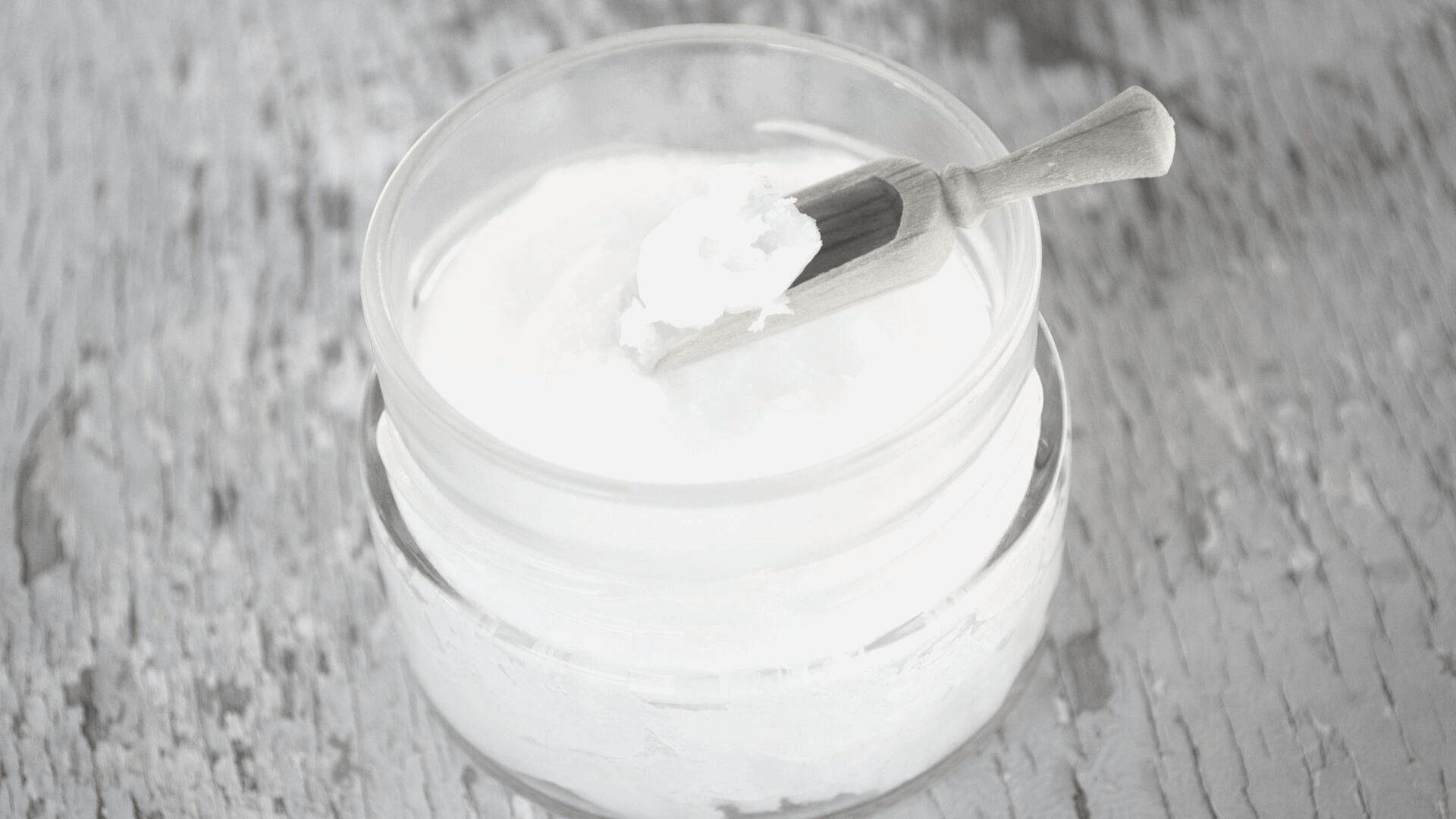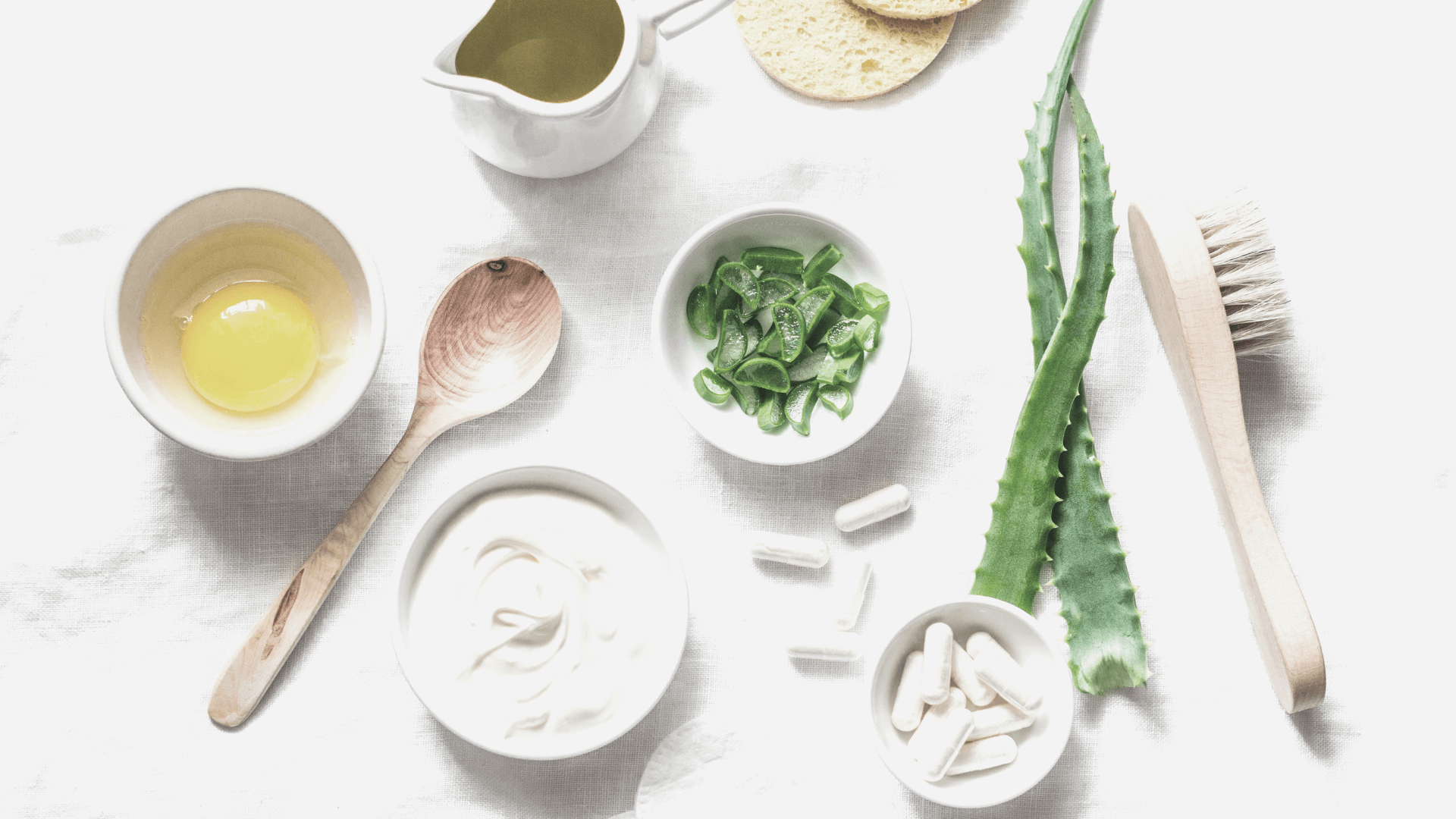Have you been hearing about spore based probiotic benefits, but you’re looking to understand all about spore probiotics in general?
Probiotic Supplements
Let’s start with the basics of — what are probiotics supplements?
Probiotics are active cultures of bacteria that can colonize in your gut.
This helps to reestablish healthy levels of bacteria within your small intestine and large intestine, which can be a game-changer for your overall health.
A healthy gut microbiome (the collection of bacteria, yeasts, and other microbes) help not only to digest food, but also to manufacture vitamins, prevent harmful pathogens, regulate immune health and connect to mood.
The integrity of your gut plays a key role in ensuring the rest of your body is functioning at its optimal position.
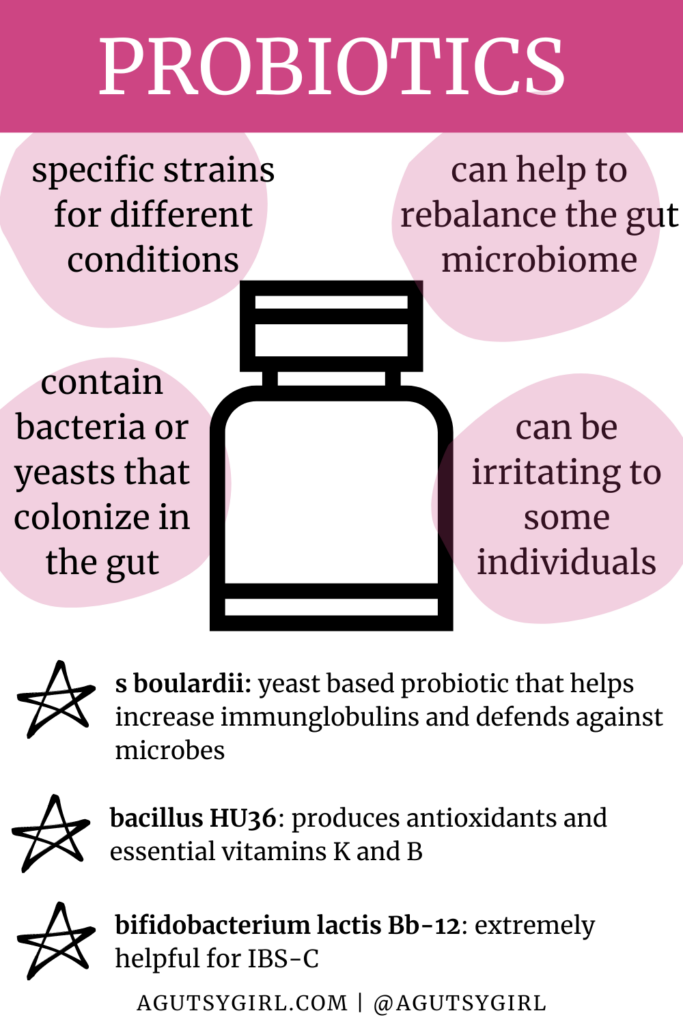
Some other functions of healthy bacteria in the gut include:
- ensuring health of gut barrier
- regulating enzyme action
- creation of cytokines (key player in immune system)
- functioning of nervous and endocrine systems
- creation of fatty acids
Most probiotics contain different levels of Lactobacillus, Bifidobacterium, Saccharomyces, Streptococcus, Enterococcus, Escherichia, and Bacillus.
These can be extremely helpful in individuals with irritable bowel syndrome who suffer from bacterial dysbiosis.
This means that the “bad” bacteria have overrun the “good” bacteria and the gut is no longer in its optimal state.
Probiotics can help to regrow friendly bacteria colonies that push out the bad bacteria.
Source: HERE
Types of Probiotics
Now that you have a foundation for what probiotics in general are, let me quickly break down different types of probiotics you might have heard of.
Because a probiotic is not just an all-in-one solution; there is no “a probiotic” out there.
Let me explain with a table (I like to see information broken down like this, and you might, too.)
| Probiotic Strain | Scientific Name | Benefits | Food Sources |
| Lactobacillus acidophilus | L. acidophilus | Supports digestive health, boosts immunity | Yogurt, kefir, sauerkraut, kimchi |
| Bifidobacterium bifidum | B. bifidum | Improves gut health, aids in nutrient absorption | Yogurt, kefir, fermented vegetables |
| Lactobacillus rhamnosus | L. rhamnosus | Supports immune function, helps with allergies | Yogurt, fermented dairy, certain cheeses |
| Saccharomyces boulardii | S. boulardii | Combats diarrhea, supports gut health | Found in some probiotic supplements |
| Streptococcus thermophilus | S. thermophilus | Assists in lactose digestion, promotes gut health | Yogurt, fermented dairy products |
| Lactobacillus plantarum | L. plantarum | Supports gut lining, may ease irritable bowel syndrome | Fermented foods, pickles, sauerkraut |
| Bifidobacterium longum | B. longum | Supports immune function, promotes gut health | Yogurt, kefir, fermented foods |
| Bacillus coagulans | B. coagulans | Spore-forming, supports digestive health | Found in some probiotic supplements |
| Bacillus subtilis | B. subtilis | Spore-forming, may enhance immune function | Soil, environment |
Soil-Based Probiotics vs Spore-Forming Probiotics
One very common question that floats around in the gut health and gut healing community is:
What’s the difference between a soil-based organism probiotics and spore-based probiotics?
Since the probiotic I take, the Just Thrive Health probiotic, is spore-based, I reached out to them and posed the question.
Here is what they said:
The spores are found in the soil but they are dormant until they reach the intestines. So they are not true soil based organisms as they are not alive.
Most probiotic products (including fermented foods) are soil-based and die off in the stomach acid. Spore-based probiotics have a protective shell that allows them to bypass the gastric system and arrive 100% alive in the gut.
Once in the small intestine, they locate and eliminate pathogens while supporting beneficial populations. This is referred to as reconditioning the gut.
In other words, it’s not necessarily soil vs spore, but instead soil containing spore.
Make sense?!
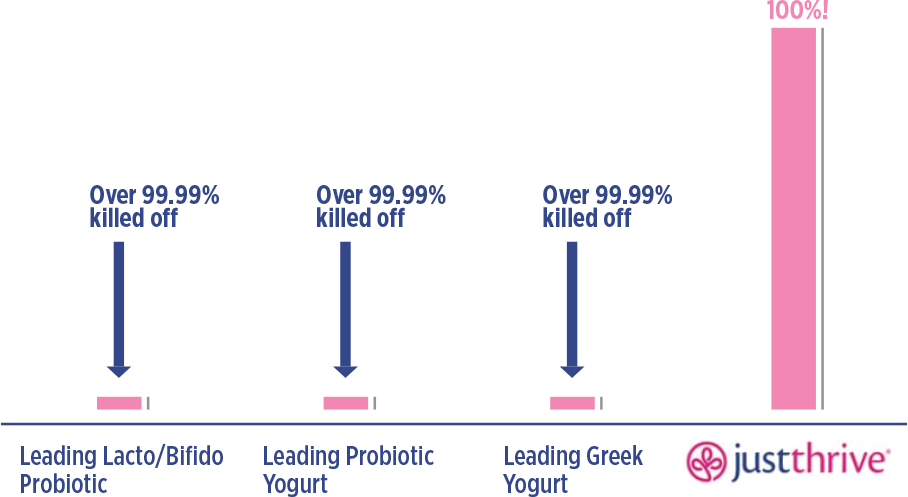
Spore Based Probiotics Benefits (+ my favorite spore based probiotic)
Click HERE to save this article on spore based probiotics benefits for later.
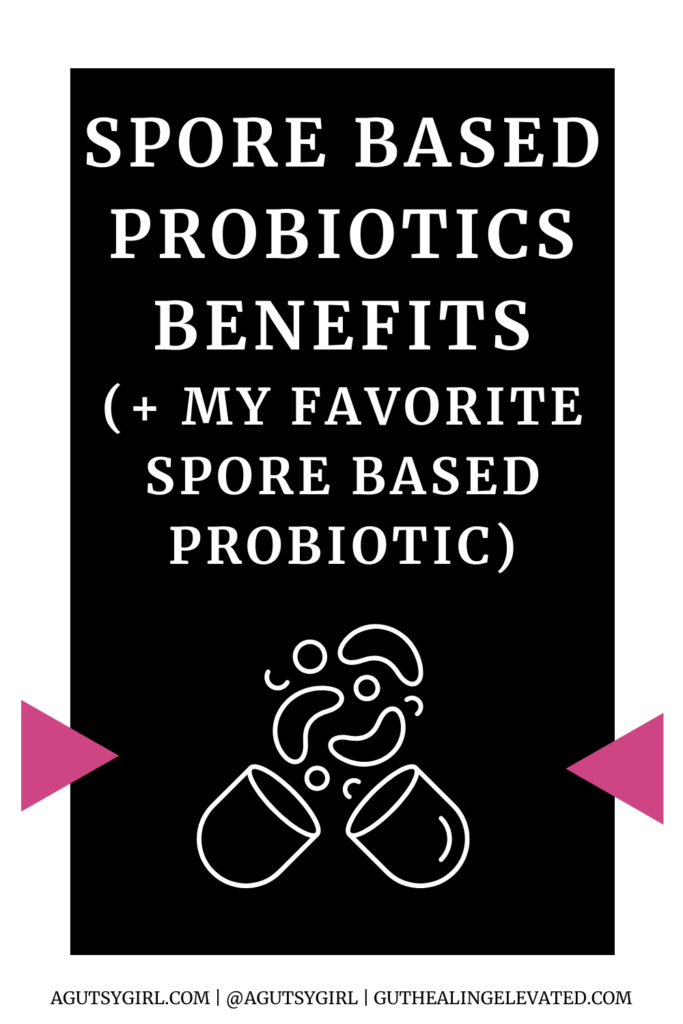
If we accept that spores are king here, then let’s talk more about why that is and what spore based probiotics benefits are.
1. Shelf-Stable
When you look at the label of your probiotic, you’re likely to notice the words, “Keep Refrigerated.”
But spore probiotics do not require refrigeration and they are shelf stable.
Another thing to consider here is that if your probiotic requires refrigeration then how can we expect it survive the digestive system?
Refrigeration is actually a sign of a very weak probiotic.
If a probiotic cannot survive at room temperature, how do you think it will survive in your 98-degree body, much less through your extremely acidic digestive tract?
Short answer: it won’t, due to the harsh environments present. Ask for gastric survivability test results proving the probiotic arrives alive in the intestines and a gut model study showing that it colonizes.
2. Microbial Diversity
One of the best spore based probiotics benefits according to Biocidin,
Spores have the ability to recondition the gut through microbial diversity and support the growth of beneficial bacteria, including keystone species such as Akkermansia.
3. The Spores Coat & Antibiotics
Many choose to increase their probiotic intake (or start taking for the first time) probiotics while on a course of antibiotics.
Choosing a spore probiotic is the clear winner.
What really distinguishes the endospore, however, is its resistance to antibiotics.
This is important for not only those consuming prescribed medications, but also a diet full of antibiotic containing foods.
Collectively, these qualities qualify spore-based probiotics as the more persistent supplement. (source)
4. And more
Emerson Ecologics also states these spore based probiotics benefits:
- Healthy gut pH*
- Short-chain fatty acid production*
- Growth of health-promoting commensal bacteria*
My Favorite Spore-Based Probiotic
Just Thrive Health Probiotic & Antioxidant is the first retail-available spore probiotic and antioxidant that arrives 100% alive to your intestines.
The verified strains have been licensed from Royal Holloway London University.
This is a GREAT overview of what this probiotic actually is.
What’s Inside the Probiotic Capsule?
The Just Thrive probiotic contains a patented strain called Bacillus Indicus HU36®, which produces antioxidants in the digestive system – where they can be best absorbed by your body.
Here are some interesting facts:
- 1000x better survivability vs. yogurt, greek yogurt & leading probiotics
- Supports immune health in the digestive system, where over 70% of it lives
- Powerful digestive support
- Improved flora balance
- Increased digestive nutrient absorption in the intestines
- Powerful antioxidant and carotenoid production at the most bio-available location in your body – your own little nutrient factory!
- Ingredients matter! Their formulations are all-natural, non GMO, and made WITHOUT soy, dairy, sugar, salt, corn, tree nuts or gluten
- Vegan, Paleo and Keto Friendly
What’s more is that it’s a proven, effective and spore-forming bacteria probiotic:
- POTENT: Just Thrive® Probiotic contains a patented strain called Bacillus Indicus HU36®, which produces antioxidants in the digestive system – where they can be best absorbed by your body. It also produces high levels of carotenoids such as Lycopene, Lutein, Astaxanthin, Zeaxanthin and Beta-Carotene. Along with these crucial antioxidants, Bacillus HU36™ also produces quinols and essential vitamins B and K2. In addition, this probiotic contains Bacillus Subtilis HU58™. One very interesting function of Bacillus Subtilis is its ability to produce nearly 12 strong antibiotics that are potent fighters of opportunistic and harmful bacteria.
- AND MORE: Bacillus Coagulans – a very well studied probiotic in the bacillus family that has a profound effect on inflammatory conditions such as IBS and Crohn’s (a form of inflammatory bowel disease). Bacillus Coagulans has an expanded effect of controlling these common inflammatory bowel conditions in addition to its potent immune boosting activity. Finally, Bacillus Clausii – This strain is the largest selling strain of probiotics in the world and is done so as a prescription drug in most countries. In the prescription market, Bacillus Clausii is recommended for use during antibiotic treatment; this is due to the probiotics ability to resist damage from a variety of common antibiotics. Deadly opportunistic infections such a C.diff and H.Pylori are becoming more common among patients on antibiotic therapy as these broad spectrum antibiotics kill off many of the good bacteria and allow for such opportunistic infections.
- PROVEN: The spores in Just Thrive® have been successfully used to enhance digestive health in the pharmaceutical market for more than 50 years.
- EFFECTIVE: Use the search bar to find out more about our leaky gut study, which showed in clinical trials how Just Thrive® Probiotic healed leaky gut in participants within just 30 days.
How to Take the Just Thrive Health Probiotic & Antioxidant
It is recommended to take one capsule daily, preferably with your largest meal of the day.
Because this probiotic is high-quality and can survive high temperatures and anything else, you can also open the capsule to titrate down, if needed. For example, if you prefer to start with just 1/4 – 1/2 capsule per day (mixed into food or beverage), you can.
If you’re unsure, check with your doctor or nutritionist, and listen to your body, to help determine the correct dose for your specific needs.
SIBO + Spore-Based Probiotics
One of the most common questions I get within the SIBO (small intestinal bacterial overgrowth) community is,
I have SIBO. What’s the best probiotic for these digestive issues?
According to this,
Spore-forming probiotics are shown to have better outcomes, specifically for SIBO-type patients, compared to traditional probiotics like Lactobacillus. They are also superior to a low-FODMAP diet alone in relieving SIBO-like symptoms, according to recent research.
Do make note, though, that taking a probiotic when you have SIBO is a lot more nuanced than simply looking at bacillus spores and and probiotic strains. If you want a simple guide to drill down further, I have an article you might want to read: Should I Take a Probiotic with SIBO?
Wrap-Up
The human gut is complex, to say the least.
My goal is to help you better understand the jargon that floats around regarding probiotics; different strains vs species and how/why probiotic bacteria can help — when we choose the right one(s) for our personal circumstances and health issues.
There is NO ONE SIZE FITS ALL.
And if you are keeping that gut healing journal and taking a closer look at your entire lifestyle components holistically, the answers will become quite clear.
Questions?
As always, leave them in the comments below.
Looking for the FULL EXPERIENCE of knowledge + action = healing, Gut Healing: ELEVATED is your next step. And I’d love to help take you from where you’re at today to where you desire to be tomorrow.
If you’re TRULY desiring to heal – to have more food freedom, and less stress and fatigue, THIS IS YOUR SIGN to join now!

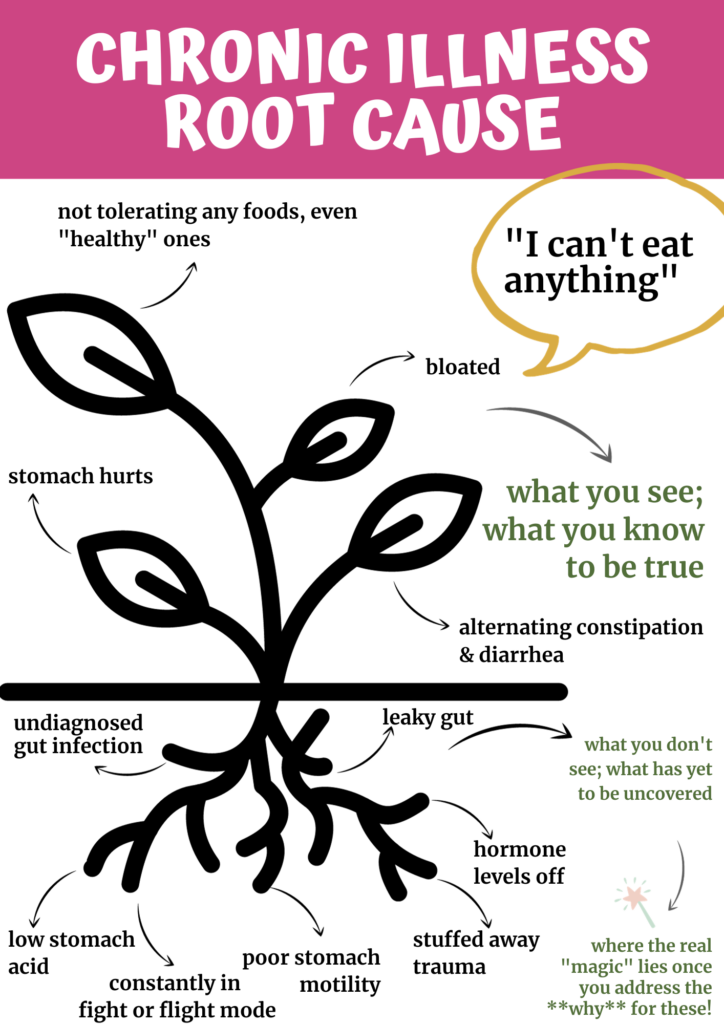

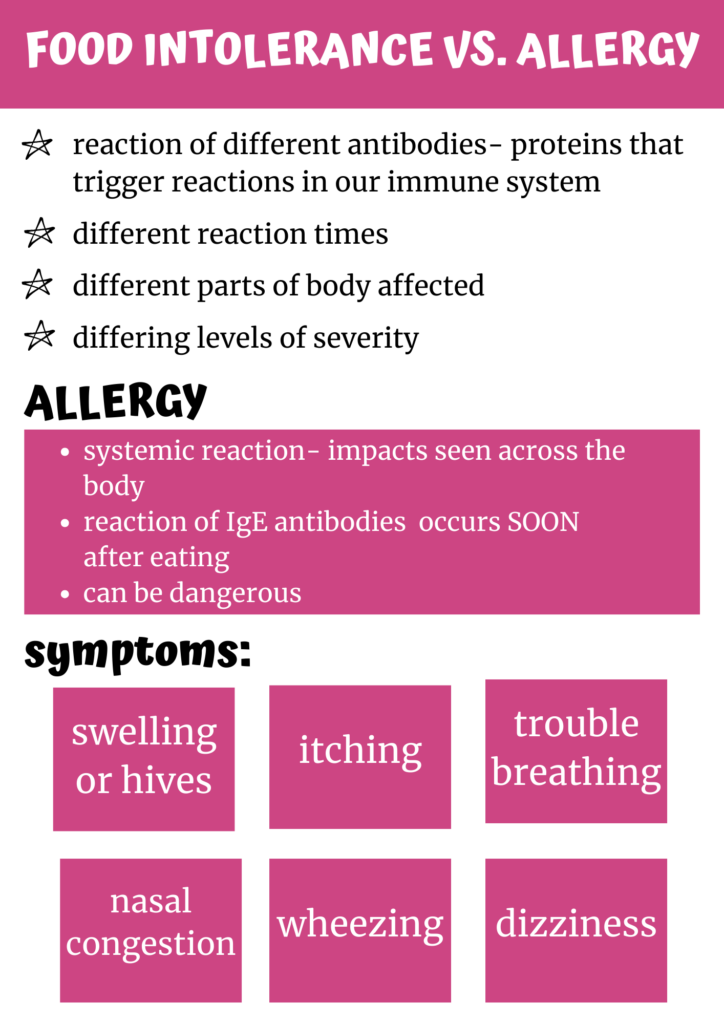



If you liked this post on the spore based probiotic benefits, you might also enjoy:
- Best Supplements for SIBO
- SIBO Supplements (6 to consider after the SIBO antibiotics)
- Probiotics for Leaky Gut
Xox,
SKH
🤰 bloating be gone! weight loss through optimal gut health for women
💃ʜᴇᴀʟ ʏᴏᴜʀ ɢᴜᴛ. ʜᴇᴀʟ ʏᴏᴜʀ ʟɪfe.
🫶🏻 founder gutbyome.com



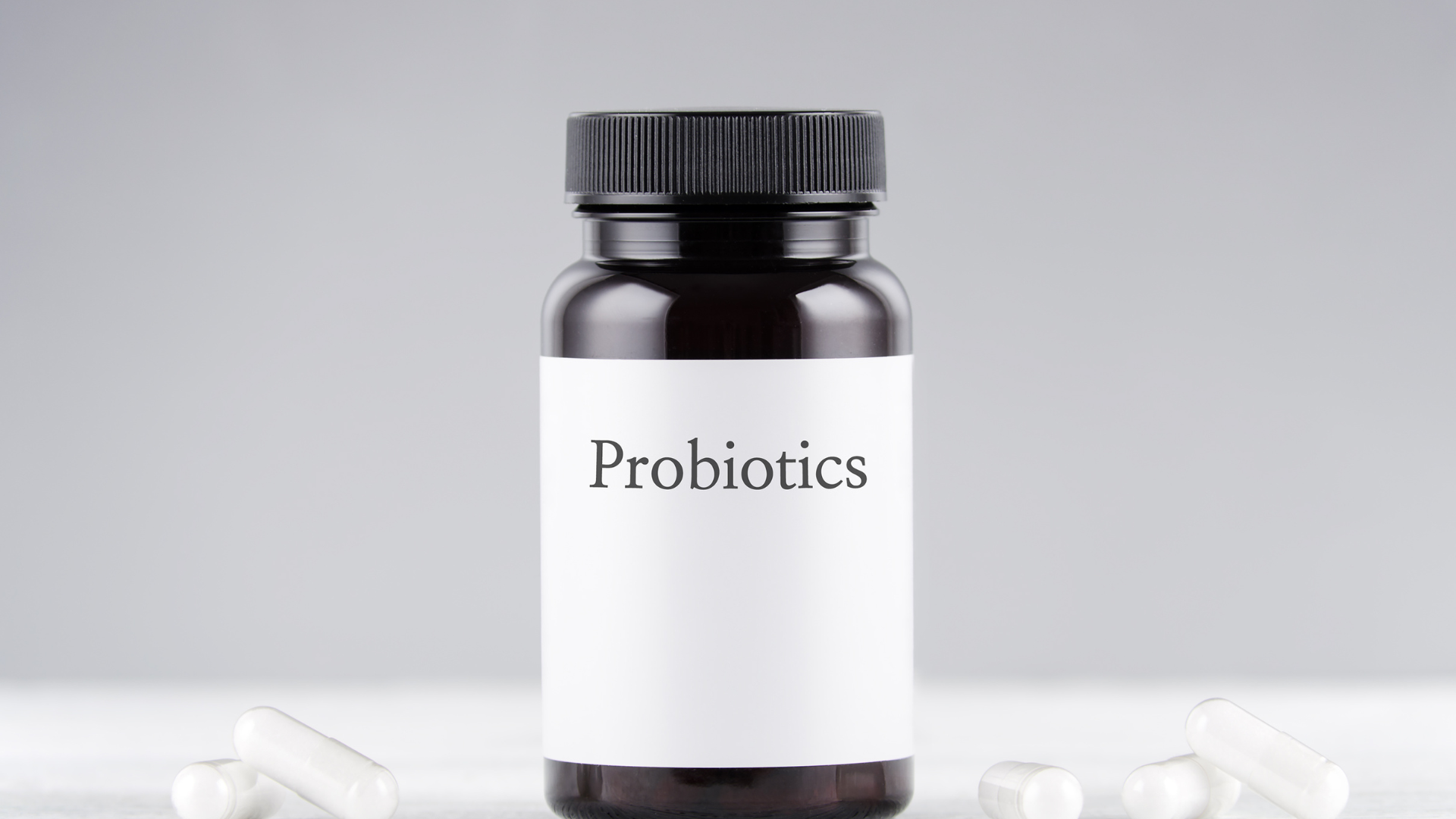
![Gallbladder vs Heartburn [Episode 52 with Erin Holt]](https://agutsygirl.com/wp-content/uploads/2022/09/ep-52-gallbladder-podcast-featured-agutsygirl.com_.png)
